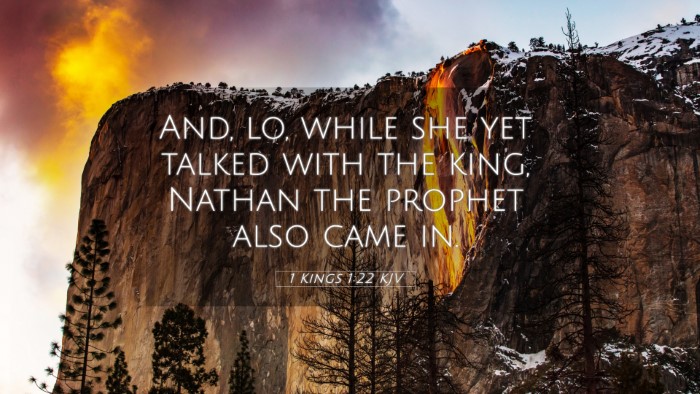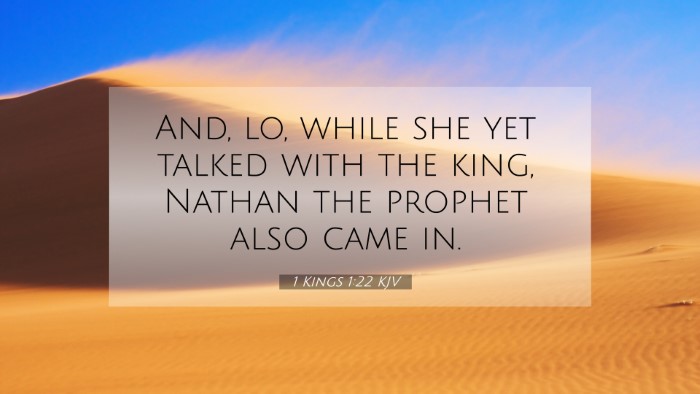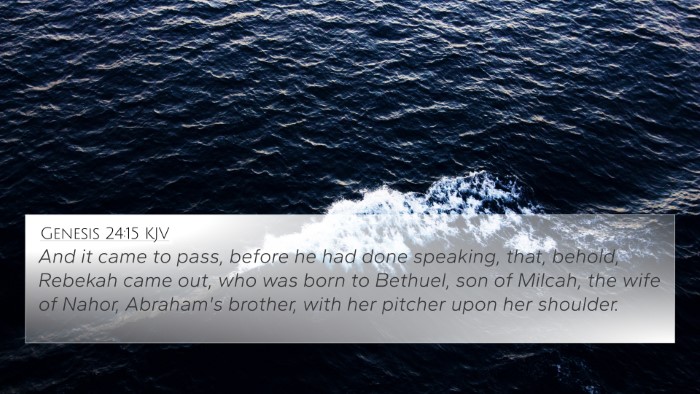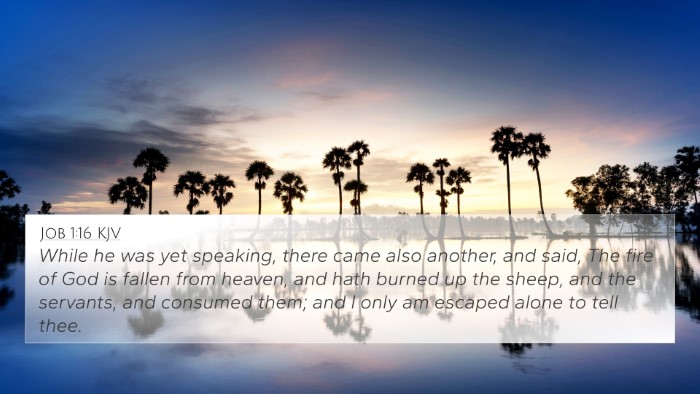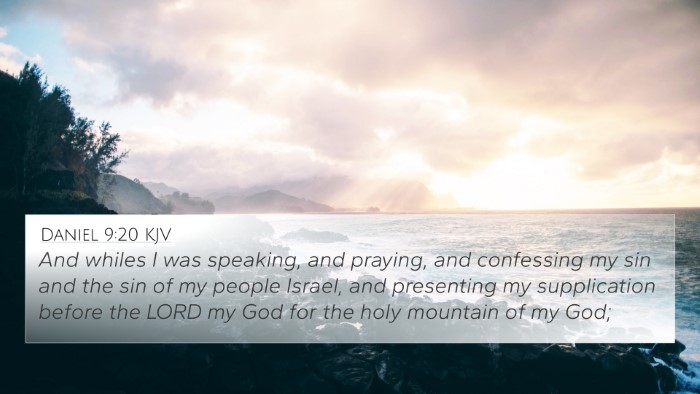Understanding 1 Kings 1:22
This passage from 1 Kings 1:22 is pivotal in the narrative of the succession of kings in Israel, particularly in the context of Adonijah's claim to the throne.
Verse Analysis
In 1 Kings 1:22, we see a significant moment where Adonijah was making a public claim to kingship while King David was still alive. The verse reads: "And, lo, while he yet talked with the king, Nathan the prophet also came in." This verse emphasizes the urgency of the revelation that Nathan brings, signaling the impending consequences of Adonijah's actions and highlighting the need for divine order.
Contextual Overview
The context surrounding this verse illustrates a power struggle within David's family. With King David old and frail, Adonijah, one of his sons, attempts to usurp authority by declaring himself king. This act was in direct contrast to the earlier decision of David to appoint Solomon as his successor.
Thematic Insights
- Divine Sovereignty: The passage underscores the theme of God's ultimate authority in appointing leaders.
- Human Ambition: Adonijah's actions reflect the human tendency to seek power and recognition.
- Prophetic Intercession: Nathan's entry signifies the role of prophets in guiding and correcting the nation’s path.
Commentary Summary
Drawing from insights of Matthew Henry, Albert Barnes, and Adam Clarke, we find a rich tapestry of meanings:
-
Matthew Henry:
He emphasizes that Nathan's arrival signifies God's intervention in human affairs, reminding us that God orchestrates the rise and fall of leaders according to His will.
-
Albert Barnes:
Barnes notes the political implications of Adonijah's crowning attempt, highlighting the need for clear succession in leadership to prevent chaos similar to the surrounding nations.
-
Adam Clarke:
Clarke provides insights on the social atmosphere, suggesting that this tension within the royal family serves to remind the readers of God's promise to David regarding Solomon's kingship.
Cross-References
This verse connects with various other scriptures that enhance its understanding and significance. Here are key cross-references:
- 2 Samuel 12:24-25: God's promise to David regarding Solomon’s birth.
- 1 Chronicles 22:9-10: David’s instructions regarding Solomon’s future as king.
- 1 Kings 1:5-6: The narrative of Adonijah proclaiming himself king.
- 1 Kings 2:15: Adonijah’s claim to the throne reemerges, displaying the ongoing power struggle.
- Proverbs 21:1: The heart of the king is in the hands of the Lord, indicating divine involvement in earthly matters.
- Romans 13:1: The principle that all authority is established by God, reflecting the Biblical understanding of governance.
- Jeremiah 23:5: A reference to God raising a righteous branch, linking to the Messianic lineage through David.
Conclusion
The events surrounding 1 Kings 1:22 are critical to grasping the unfolding of God’s plan for Israel’s monarchy. Understanding the context, themes, and cross-references contributes to a richer, more nuanced interpretation of the text. This passage serves not only as a historical account but also as a theological assertion of God’s sovereignty in leadership, portraying how divine will prevails over human ambition.
Further Study Suggestions
- Utilize bible concordance tools to explore other related verses.
- Investigate the bible cross-reference guide for deeper thematic studies.
- Consider cross-referencing Bible study methods for a comparative analysis of the lives of David and Solomon.
Questions for Reflection
As you study 1 Kings 1:22, consider these questions:
- What lessons can we glean about leadership from Adonijah's ambition?
- How does Nathan's role illustrate the importance of prophetic voices in our lives?
- In what ways does this narrative encourage trust in God’s plans amidst political turmoil?

